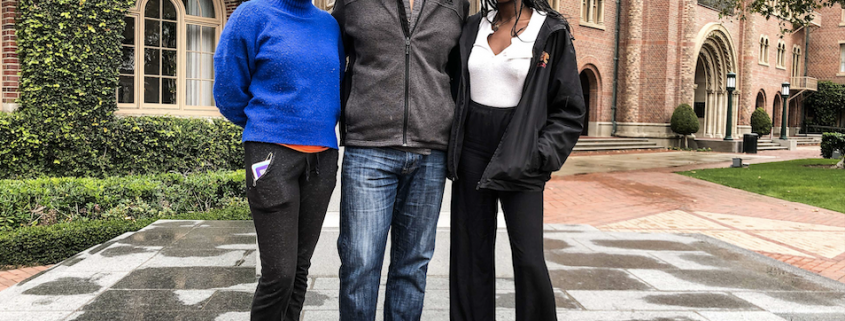Students reestablish accounting organization on campus

A small group of students at the Leventhal School of Accounting has reestablished the USC chapter of the National Association of Black Accountants to promote representation for accounting students of color. The organization was officially recognized by the University this semester after disbanding due to lack of leadership, organization and interest in 2014.
NABA president Paul Adams II, a junior majoring in accounting and computer science, said that even though undergraduates serve on the executive board, the organization was originally restarted by a group of graduate students.
“Originally [NABA] was brought back by grad students, however according to USC rules grad students could not be on the e-board, so the undergraduates got to start it,” Adams said.
Elsie Wesamba, NABA’s vice president, said she was inspired to join the organization after speaking to her academic adviser.
“My adviser recommended that I help restart the organization, and I decided that this is what I wanted to put all my time in,” said Wesamba, a freshman majoring in accounting. “I love the idea of the community and how it connects to something that I’m interested in.”
Wesamba said she was interested in becoming involved when she arrived at USC and is excited that NABA has relaunched as an official organization under the Marshall School of Business this semester.
“I was looking for something to take initiative at USC, and it’s not that I wanted to start my own organization, but I wanted to be a part of something I really cared about and could put all my time into,” Wesamba said.
According to Marshall’s school profile, black students comprise 3 percent of the school’s undergraduate population, and NABA is a way to connect members of the black community.
“Because I’m a part of NABA, I get to meet so many people who are the same as me and from minority backgrounds,” Wesamba said.
Firdaws Hagosm, NABA’s treasurer, believes that the organization has the ability to encourage underrepresented Marshall and Leventhal students to pursue their professional goals.
“I joined NABA because I wanted to be apart of a community that not only uplifted me in my future career but would also help other students excel in their careers,” Hagos, a junior majoring in accounting, said. “NABA’s goal is to reduce the gap of minorities in accounting or related fields. It provides minorities access to many scholarships and networking opportunities in order to bridge the gap visible in the accounting profession.”
According to the national organization’s website, less than 9 percent of accountants are black, a statistic NABA hopes to change.
“[The] main goal is to bridge the opportunity gap between black professionals,” said Emmy Esquerre, NABA’s public relations chair. “[NABA] offers networking opportunities, scholarships and they hold national conventions.”
Esquerre, a freshman majoring in business administration, said that NABA hopes to establish ties with the local community by engaging in outreach with nearby schools.
“We’re hopefully going to do some volunteering and high school programs to get other students that are younger than us interested in [NABA] because we really need more diverse perspectives in this field,” Esquerre said.
Though the USC chapter is still in its beginning stages of development, Wesamba remains optimistic for the future and said the board is planning to make an impact in Leventhal.
“Our goal is to get it started again,” Wesamba said. “Like have it be an organization that has members and events … because we are still in our very early stages.”
Adams said the organization is hosting a major event panel on campus Feb. 21 with all four U.S.-based major accounting firms to encourage students of color in the field.
“The black community at USC here is just so small, and I feel like because it’s so small, we have a really hard time interacting with each other and getting together,” Wesamba said. “It’s really important that we have spaces where we can discuss what it means to be a minority in a predominately white field.”
This story is part of the Daily Trojan’s special coverage for Black History Month. It will run periodically throughout February.

